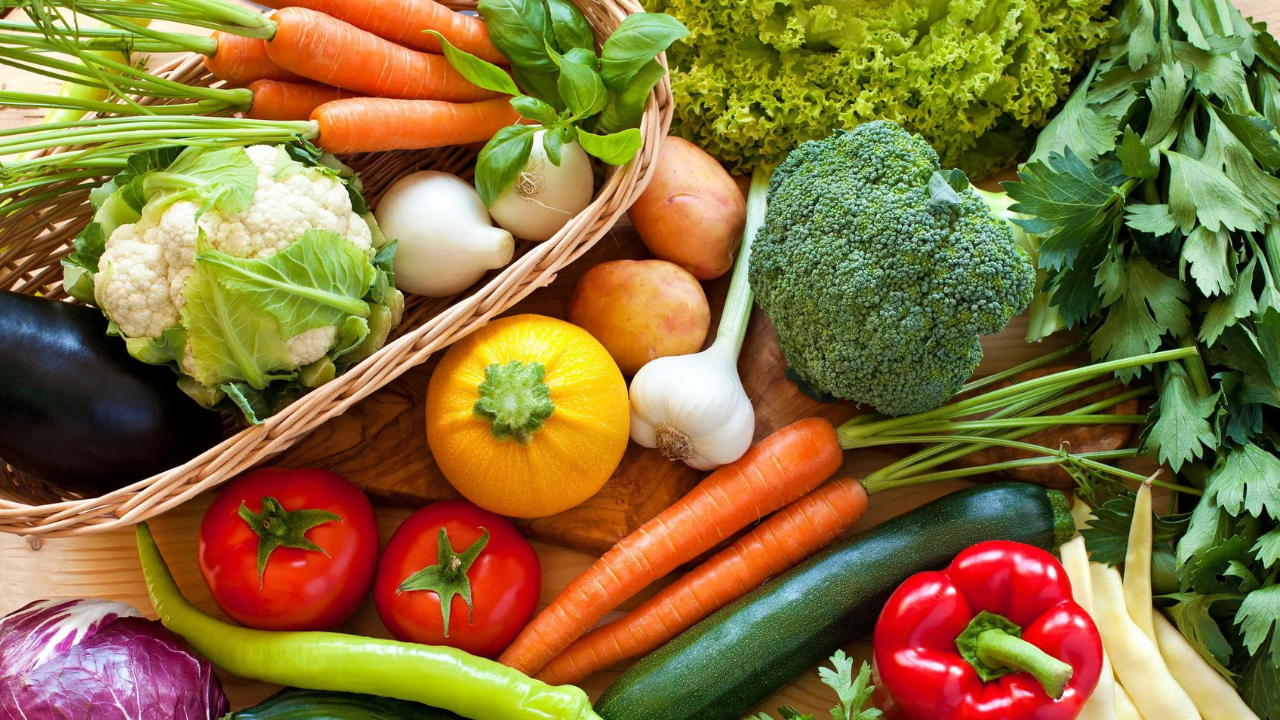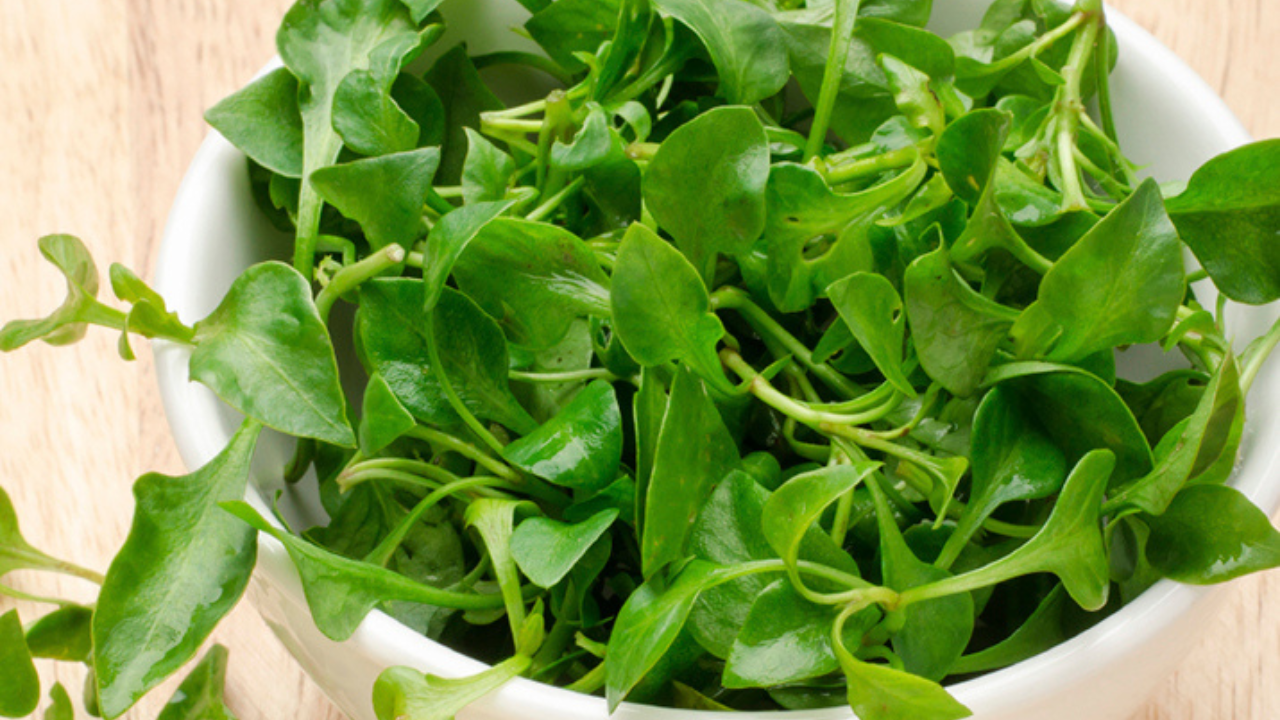

It’s no secret that vegetables are one of the most important food groups out there. They provide us with the essential vitamins, minerals and nutrients that our body needs, simultaneously helping support our digestion and immune system. Fruit is exactly the same (check out what 8 of the healthiest fruits are!) and is also incredibly important in our diet. Most people are well aware of the recommended 5 A Day campaign, but did you know there is one specific vegetable that is scientifically proven to be healthier than the others? Yep, you heard us right.
The Centers for Disease Control and Prevention has recently revealed the only vegetable classed as having a 100% nutrient density score. The study looked at 17 important nutrients naturally occurring in food (fibre, protein, potassium, Vitamin A, B12, D) and calculated how much of those nutrients were found in a 100 calorie serving. The results are in - it’s watercress.
What is watercress?
Watercress (Nasturtium officinale) is a semi-aquatic plant that grows in shallow waters and natural springs. Belonging to the mustard family, watercress is related to collard greens, broccoli, cabbage, kale, brussel sprouts, turnips and radishes.
Historically, watercress was used more as a garnish but is now seeing a resurgence in popularity as one of the latest superfoods. The flavour is pungent and peppery, with a similar scent to rocket.
Watercress can also be grown hydroponically all year round - a method of growing plants without soil.

What are the health benefits of watercress?
1. It lowers your blood pressure
Watercress contains calcium, potassium and magnesium, all of which help to bring down blood pressure by releasing sodium and helping the arteries to dilate. However, anyone taking blood thinners should consult their doctors before adding watercress to their diet as Vitamin K plays an important role in blood clotting and could potentially affect the medication’s effect.
Sign up to the T3 newsletter for smarter living straight to your inbox
Get all the latest news, reviews, deals and buying guides on gorgeous tech, home and active products from the T3 experts
2. It maintains healthy bones
The high vitamin K content of watercress paired with its calcium levels can help promote healthy bones. Eating just one cup of watercress helps to meet the daily need for vitamin K.
3. It’s an anti-inflammatory
Watercress works well at reducing inflammation due to containing polyphenols and antioxidants. This not only keeps your body operating well, but it can also help stop the onset of illnesses like arthritis and joint discomfort.
4. It improves eyesight
Due to the high levels of lutein and zeaxanthin in watercress, it aids in maintaining good vision. It also contains a lot of vitamin C which helps in reducing the risk of cataract development.
5. It decreases the chance of developing cancer
Watercress is a cruciferous vegetable with a higher glucosinolate content than other cruciferous vegetables such as cabbage, radish and turnip. It has been demonstrated that glucosinolates prevent the development of cancer cells, and stop any from remerging.
How to use watercress and enjoy its benefits
To fully absorb all of the nutrients in watercress, it is best enjoyed raw. However, it can also be added into a range of hot dishes to add a delicious flavour as well as fantastic colour and texture. When raw, you can add watercress to other greens such as kale or baby spinach for a salad, or include into your next sandwich, wrap or grain bowl.
You can also sauté watercress with some garlic and extra virgin olive oil for a quick side dish, or blitz it in your blender the next time you’re making soup. Check out our best blenders for 2023!
Well there you go, if you’re feeling like giving your body some nutrients or just a bit of a detox, watercress is the place to start. If you’re interested in more, read our guide on 5 ways you can support & improve your gut health.

Lizzie is T3's Home Living Staff Writer, covering the latest in style, wellness and beauty tech. From skincare gadgets to vacuum cleaners, she's your go-to for trends and top recommendations.
When not writing, Lizzie enjoys mooching around Bath, spending time with loved ones, or testing her review units – often during an enthusiastic cleaning spree!
-
 I just played new Mario Kart on Switch 2, now June is too far away
I just played new Mario Kart on Switch 2, now June is too far awayIt might not be the 3D Mario game we'd expected, but Mario Kart World on Nintendo Switch 2 is super fun
By Mike Lowe
-
 Nothing's next phone could be a budget powerhouse, thanks to this confirmed hardware detail
Nothing's next phone could be a budget powerhouse, thanks to this confirmed hardware detailOfficial details reveal more about the next phone coming from Nothing
By Chris Hall
-
 I spent 6 weeks with the FoodMarble Aire 2: here’s what I learned about my gut health
I spent 6 weeks with the FoodMarble Aire 2: here’s what I learned about my gut healthI’ve been testing the clever breath-testing gadget with the companion app over several weeks to find out if it delivers on its promises
By Lee Bell
-
 Oil pulling is going viral on TikTok for stopping morning breath – but does it actually work?
Oil pulling is going viral on TikTok for stopping morning breath – but does it actually work?4 hacks that prevent morning breath, according to a sleep expert
By Bethan Girdler-Maslen
-
 These limited edition McLaren x Loop earplugs are what you need for Formula 1 season
These limited edition McLaren x Loop earplugs are what you need for Formula 1 seasonMcLaren teams up with Loop on limited edition noise-reducing earplugs
By Bethan Girdler-Maslen
-
 3 reasons why you wake up at 3am every night – and how to avoid it
3 reasons why you wake up at 3am every night – and how to avoid itAlways waking up in the middle of the night? This could be why…
By Bethan Girdler-Maslen
-
 Therabody experts give 7 tips for perfecting your sleep routine for World Sleep Day
Therabody experts give 7 tips for perfecting your sleep routine for World Sleep DayFrom breathing exercises to sleep masks, here’s how to prioritise sleep, according to experts
By Bethan Girdler-Maslen
-
 Loop Dream review: super soft earplugs to help you snooze soundly, even if you’re a side sleeper
Loop Dream review: super soft earplugs to help you snooze soundly, even if you’re a side sleeperSquishy silicone and uniquely shaped ear tips take Loop’s nighttime earplugs to dreamy heights
By Joanna Ebsworth
-
 Can’t get to sleep? Grounding bed sheets could be the answer – but I need convincing
Can’t get to sleep? Grounding bed sheets could be the answer – but I need convincingIs this the future of sleep tech?
By Bethan Girdler-Maslen
-
 Simba reveals 3 shocking signs of sleep deprivation on the body
Simba reveals 3 shocking signs of sleep deprivation on the bodySimba’s latest study reveals the main physical effects of sleep deprivation
By Bethan Girdler-Maslen